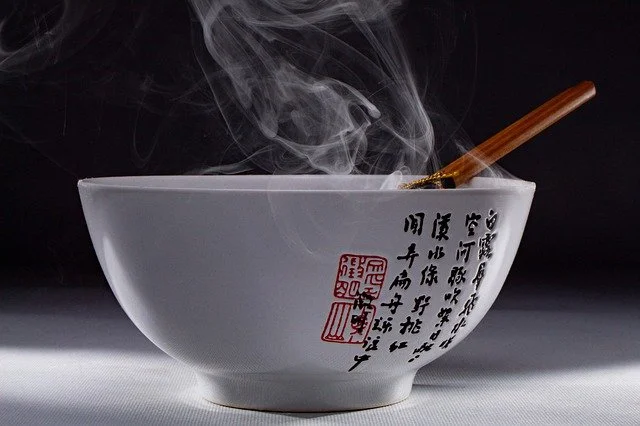Winter Tonic Soup
In the chill of winter, we gravitate to warmth and light.
On the shortest day and the longest night
I give to you the warmth of light
ASTRAGALUS
Originating in northeastern China, central Mongolia, and Manchuria, the root of the herbaceous perennial Astragalus membranaceus or 黃芪 (huangqi) is a staple of traditional Chinese medicine. Mild in strength, with a sweet and slightly warm nature and an affinity for the spleen and lungs, astragalus is used as a general tonic to improve endurance, immune resistance, and energy, and to promote blood flow to the surface. Astragalus is useful for viral infections and increases the action of interferon alpha-1. It tonifies the spleen, the qi, and the blood. It is indicated for energy deficiency, fatigue, facial swelling, diabetes, and other ailments.
The use of astragalus root as a general tonic dates to the 28th century BCE and the mythical Chinese ruler Shennong, the legendary author of the first materia medica. Its constituents include triterpenoid saponins, astragalosides I-VIII, astramembranins I and II, isoglavones including formononetin and kumatakenin, and polysaccharides known as astrogaloglucans. Clinical studies supported by data from over 1000 patients in China confirm the use of astragalus as an immunostimulant in colds and upper respiratory infections. It is also used prophylactically. In general, astragalus is well tolerated but should probably be avoided in autoimmune diseases.
WINTER TONIC SOUP
Traditionally, the roots of Astragalus membranaceus are added to soup recipes before the cold season arrives to prevent respiratory ailments. Astragalus is an adaptogen and increases qi. The recommendation is to eat astragalus soup daily for one to three months to build immunity for the winter.
INGREDIENTS
Root herbs astragalus, ginseng, eleuthero
Six cups low-salt soup broth
2 tablespoons olive oil
2 cloves garlic
4 carrots
1 onion
1-2 pounds chicken (optional - for added immunity)
2 cups of chopped greens (spinach, chard, kale)
4 sprigs of parsley
2-3 sprigs of sage
6 slices of ginger root
Step 1: Soak root herbs in large pot with soup broth while preparing Steps 2 and 3.
Step 2: Mince garlic, chop carrots and onion. Sauté in olive oil over low heat until onions are translucent.
Step 3: Add chicken to above and brown on both sides.
Step 4: Add sautéed carrots, onions, and garlic, as well as chopped greens, sprigs of parsley and sage, slices of ginger, and chicken to soup broth.
Step 5: Simmer soup 3-4 hours, then remove root herbs, ginger slices, and sprigs of parsley and sage.
Step 6: Season to taste with salt and pepper or soy sauce/hot oil/sesame oil.
Please note: Information about herbs and their medicinal properties is provided for educational purposes only. Seek the advice of a qualified healthcare practitioner before taking any herbal medicine, dietary supplement, or pharmaceutical remedy.

